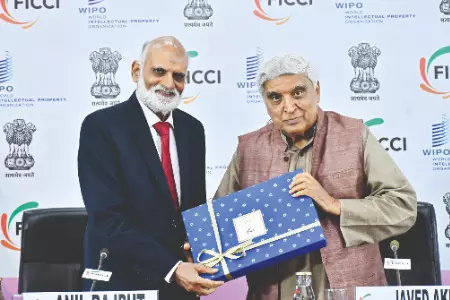Ministry of Culture set to sign MoUs with Spotify & YouTube to promote folk & traditional music

New Delhi: The Ministry of Culture is set to sign MoUs with Spotify and YouTube to promote folk and traditional music, said Secretary Vivek Aggarwal at the FICCI conference ‘IP and Music: Feel the Beat of IP’ on Tuesday.
“We are in discussions with Spotify and YouTube to sign MoUs promoting folk and traditional music that currently lacks commercial market presence,” Aggarwal said.
The Ministry is also pursuing Geographical Indication (GI) tags for traditional instruments and styles, alongside revamping exhibitions with audiovisual components.
To support regional artists, IP registration cells will also be established at cultural centres.
“We are planning to create cells to educate and provide handholding for new artists to obtain IP registration,” Aggarwal stated.
FICCI IPR Committee Chairman Anil Rajput announced a new IP for Business Center in partnership with WIPO, calling it a key step in protecting creators and boosting India’s creative economy.
“This center will serve as a pivotal resource for Indian businesses, creators, and innovators,” Rajput said. The conference also addressed emerging challenges in IP enforcement and the dual role of AI in the music industry, with calls to build an ecosystem that protects creators while embracing innovation.
At the event, lyricist and Indian Performing Right Society (IPRS) Chairman Javed Akhtar called for greater safeguards to protect artistic freedom from the growing influence of market forces. Akhtar warned that corporatisation is limiting creative expression in the music industry. “There has to be a balance between creativity and the market,” Akhtar said.
He added that without fair compensation and security, artists struggle to resist pressure to conform to commercial formulas. Highlighting the turnaround of IPRS since reforms in 2017, Akhtar said, “When we took over in 2017, the annual income at its peak was ₹42 crore. This year we have crossed ₹730 crore, and we’ll hopefully cross ₹1,000 crore in a couple of years.” He credited stronger copyright protections for empowering composers and writers, though he stressed that implementation gaps
still persist.



